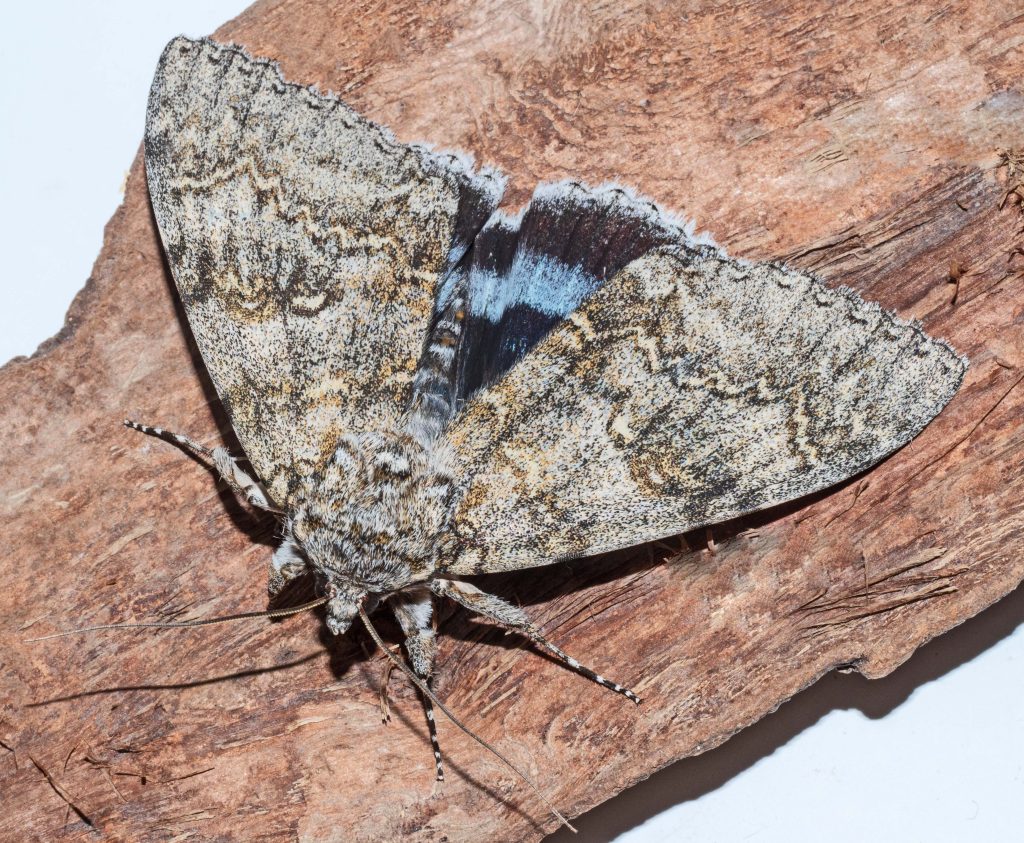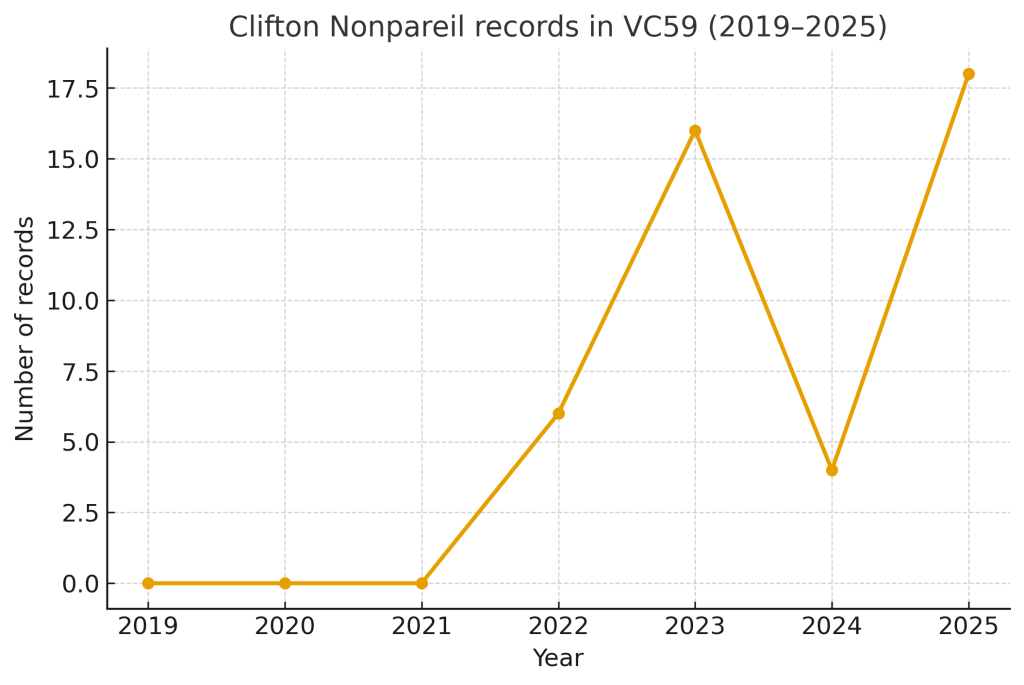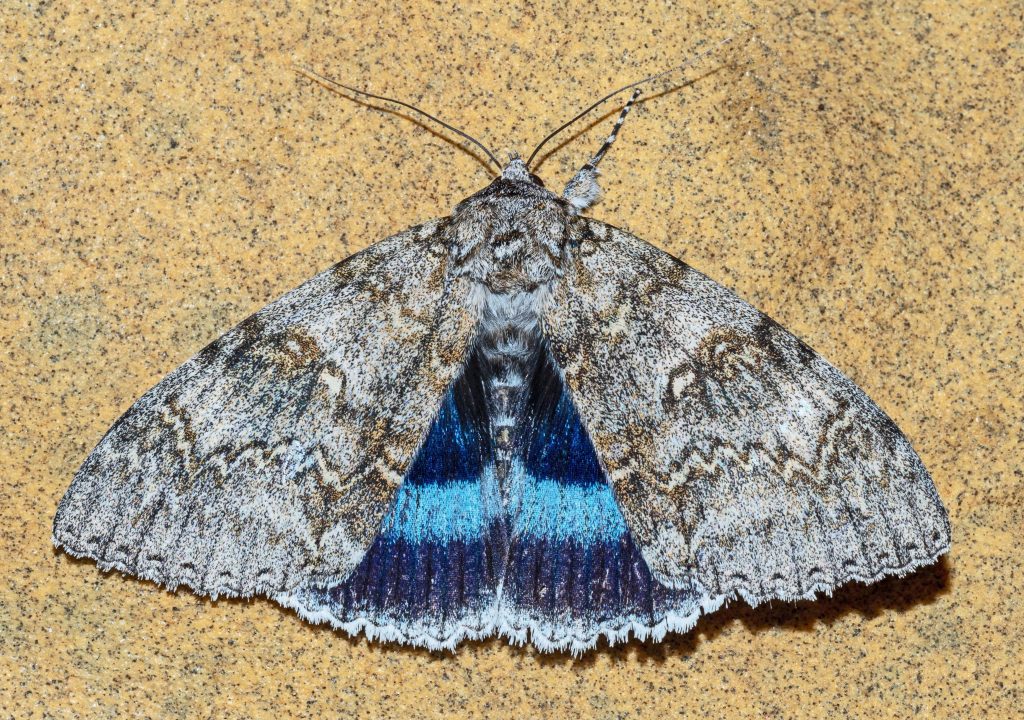The Clifton Nonpareil Catocala fraxini is one of the UK’s largest and most striking moths, famous for the violet-blue bands on its hindwings. Once widespread in southern Britain, the species became extinct nationally during the mid-20th century, with only scattered historical records persisting further north. In Lancashire these comprised six 19th century records and a single post-war occurrence from Lytham St Annes in 1948.

After decades of absence, the species has returned to South Lancashire in force. Following a complete lack of records in VC59 between 1949 and 2021, six records of adults were noted at light traps in 2022, coinciding with the influx seen across Britain that year. Numbers increased further to 16 records in 2023, dipped slightly to four in 2024, but have surged again in 2025 with at least 19 adult records to date. Caterpillars of C. fraxini have yet to be found in Lancashire but elsewhere are known to feed mainly on aspen (Populus tremula) and other poplars, and occasionally on willow (Salix).

This year’s records come from a wide spread of sites across South Lancashire, including Crosby, Formby (NT and a private garden), Ainsdale, Southport, Warrington, St Helens, Tarleton, Banks, Rainford, Widnes, Littleborough and Flixton. The rapid increase in records over just four seasons strongly suggests that the Clifton Nonpareil is re-colonising Lancashire, mirroring its expansion elsewhere in northern England. Continued recording in coming years will be important to understand whether this represents sustained colonisation or fluctuating influxes linked to broader population dynamics in Southern England and on the continent.

Sources
- The Moths of Lancashire (Palmer and Smart 2024)
- Lancashire moth group records database (Sept 2025)
- Butterfly Conservation (n.d.) Clifden Nonpareil. Available at: https://butterfly-conservation.org/moths/clifden-nonpareil
- Butterfly Conservation (2021) Species of the Month: Clifden Nonpareil. Available at: https://butterfly-conservation.org/news-and-blog/species-of-the-month-clifden-nonpareil
- UKMoths (n.d.) Catocala fraxini. Available at: https://ukmoths.org.uk/species/catocala-fraxini
- Pyrgus.de (n.d.) Catocala fraxini. Available at: https://www.pyrgus.de/Catocala_fraxini_en.html
- Durham Moths (n.d.) Catocala fraxini. Available at: https://durhammoths.org/taxonomy/erebidae/catocala-fraxini
- Breeding Butterflies (n.d.) Blue underwing – Catocala fraxini. Available at: https://breedingbutterflies.com/catocala-fraxini-blue-underwing
- Norfolk Moths (n.d.) Catocala fraxini – Clifden Nonpareil. Available at: https://norfolkmoths.co.uk/index.php?bf=24510&v=t







